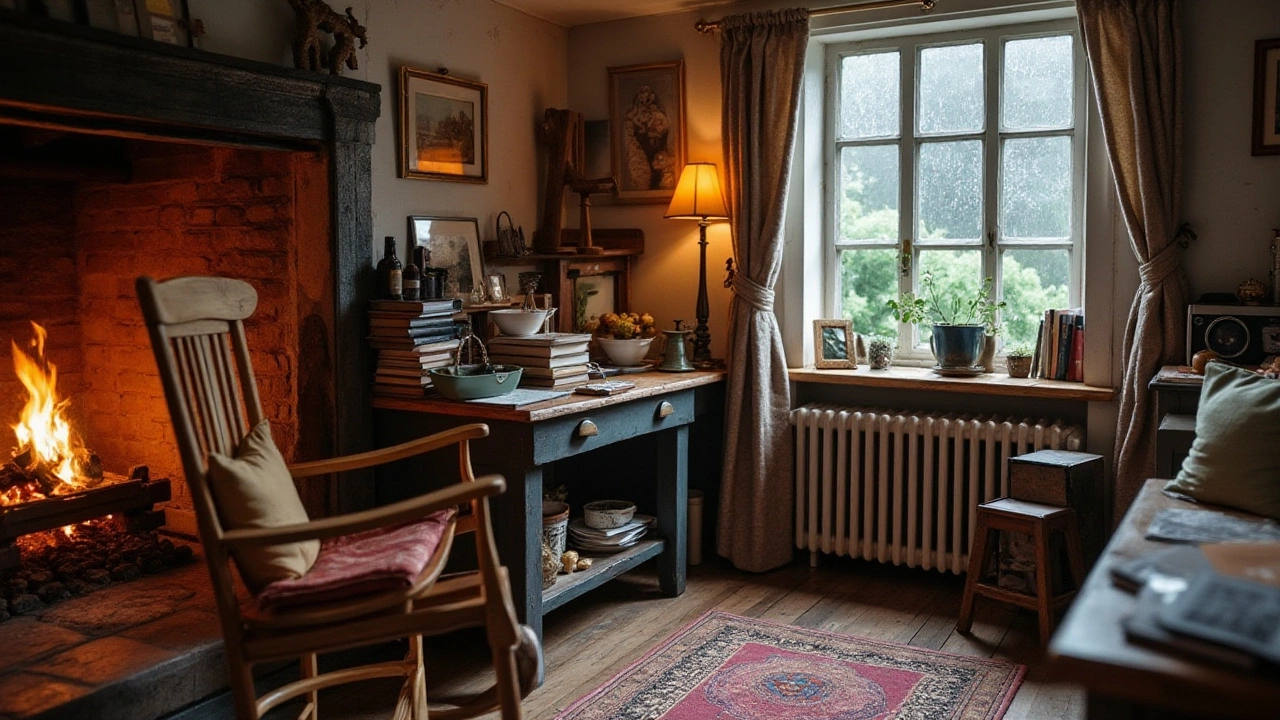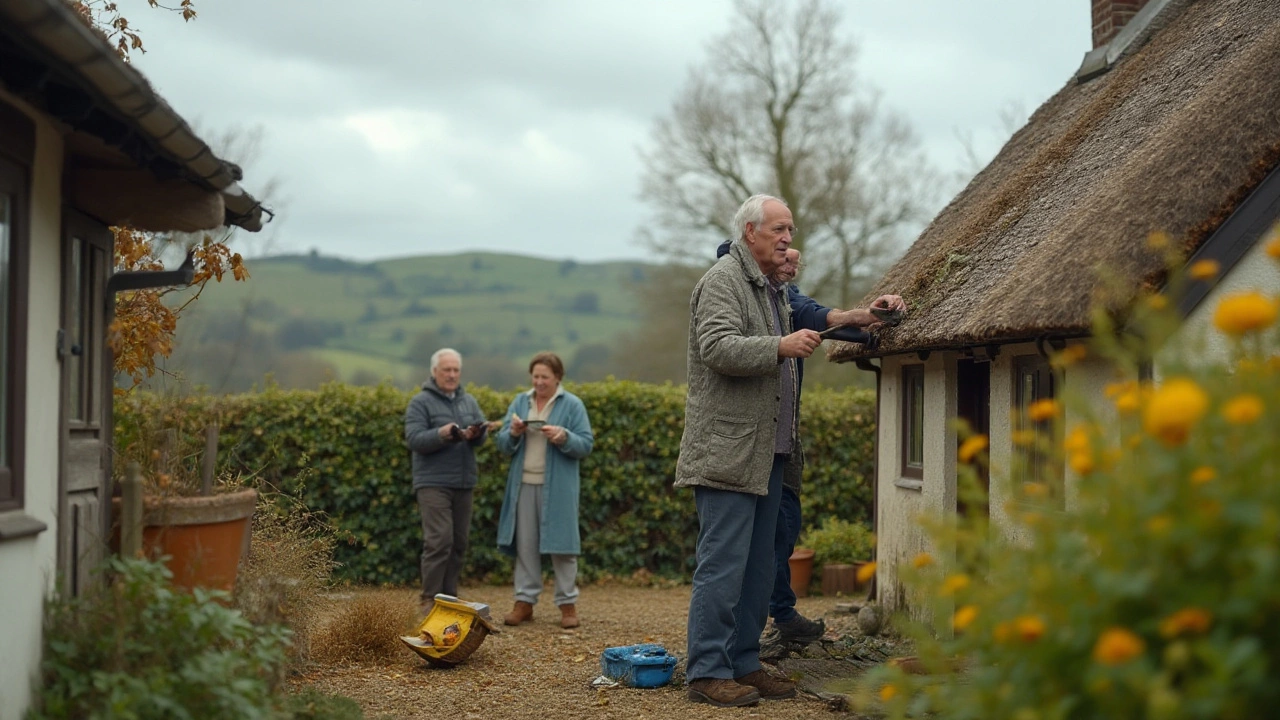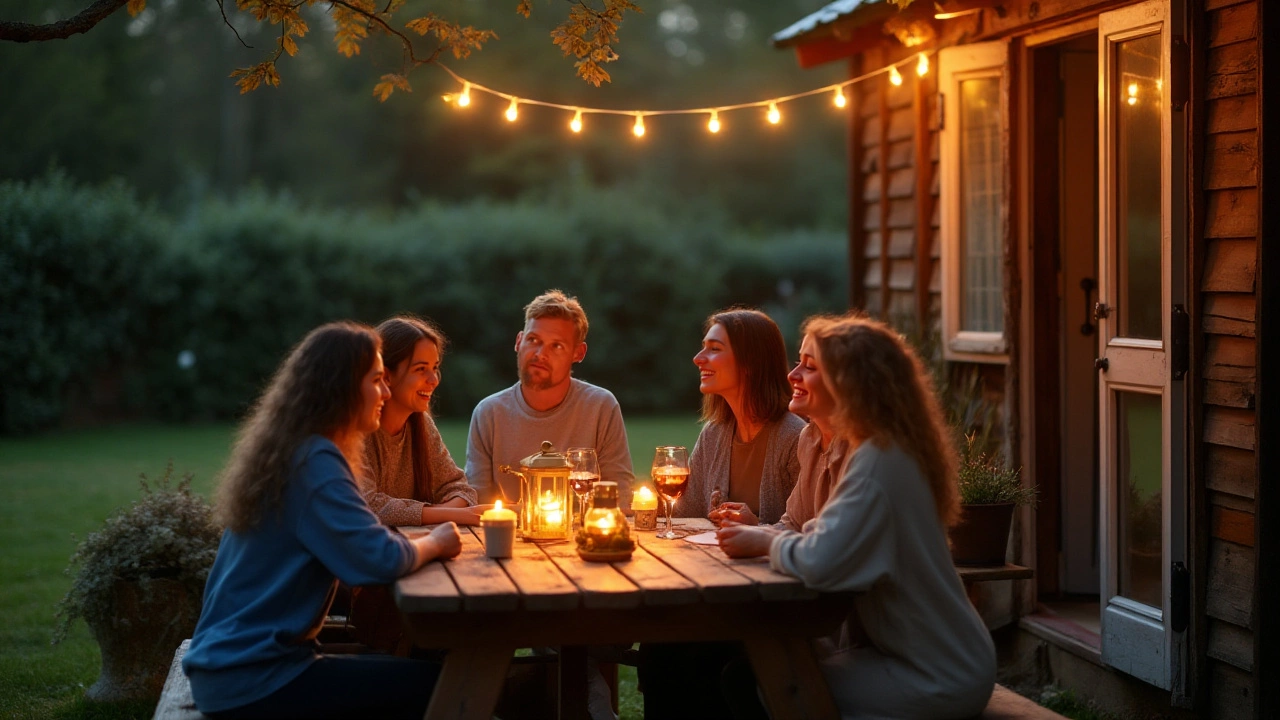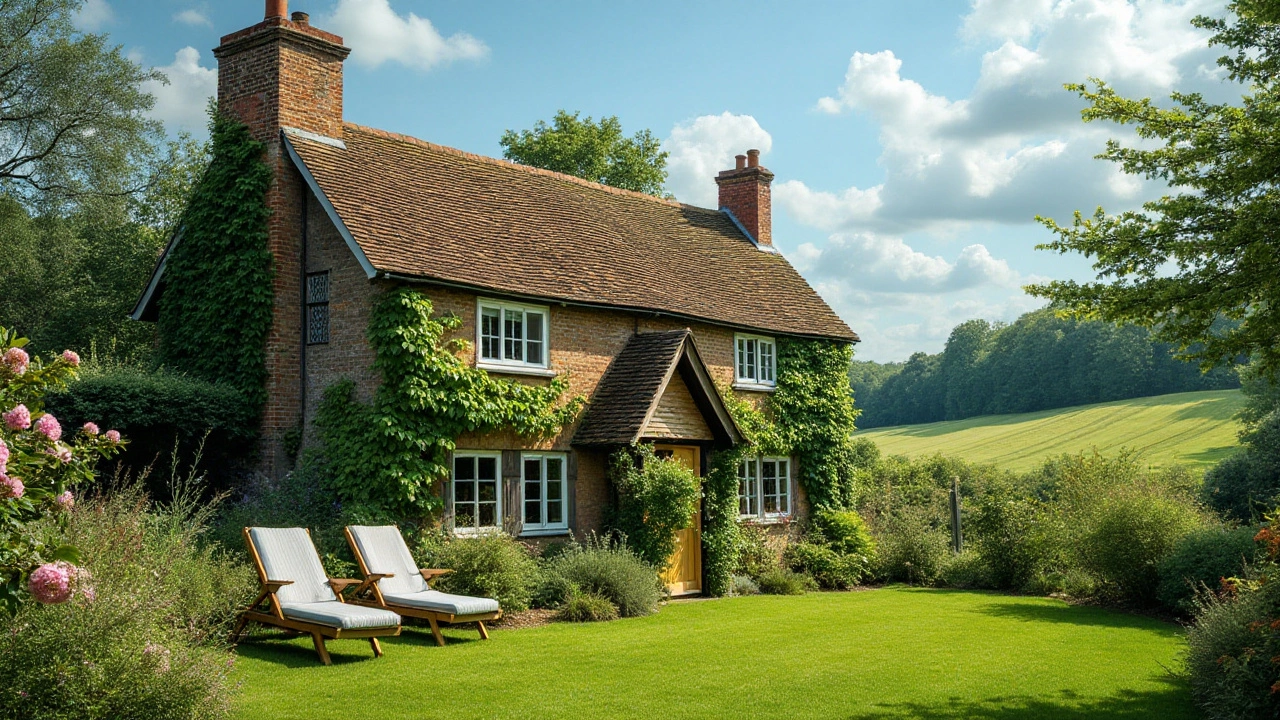When we think of holidaying, the idea of a charming cottage nestled in the countryside often comes to mind. The allure of escaping from the hustle and bustle, getting back to nature, and sinking into tranquility can be irresistible. Yet, while cottages sound delightful in theory, it's important to weigh the potential downsides before booking.
From outdated facilities to the feeling of being cut off from the world, cottages can occasionally present challenges that aren't as apparent at first glance. This doesn't mean ditch your plans, but understanding what these might be can help ensure your stay is as enjoyable as possible.
This article sheds light on a few of the often overlooked aspects of holiday cottages, offering insights and tips to help you prepare and embrace every aspect of your cozy retreat.
- Limited Modern Amenities
- Isolation and Accessibility
- Maintenance and Upkeep
- Practical Tips for Better Cottage Experiences
Limited Modern Amenities
Holiday cottages promise a nostalgic escape into simpler times, yet this can come with its own set of challenges, especially when it comes to amenities. Many cottages, particularly those situated in rural or remote locations, might not be equipped with the conveniences that the average traveler is accustomed to. This lack of modern facilities can be a double-edged sword; it's charming for those seeking an authentic experience, yet possibly frustrating for those who favor comfort and ease over rustic authenticity.
Imagine preparing for your stay and discovering that the cottage lacks a reliable internet connection. While some visitors unplug intentionally, others may find it difficult, especially if staying connected is essential for work or personal reasons. An informal survey by travel site Rural Retreats hinted that over 40% of travelers see the absence of Wi-Fi as a significantly negative aspect.
"Staying disconnected can be both rewarding and challenging," shares travel expert Tom Jenkins. "Guests should prepare for a different pace. Those who adapt tend to enjoy their stays more."
Not to mention, basic amenities like consistent hot water, modern plumbing, or climate control systems might be sparse. Older buildings may not boast central heating or air conditioning, making winter months chillingly cold and summer swelteringly warm. These factors alone can play a significant role in shaping the comfort of a vacation. Furthermore, kitchen facilities might be minimal, challenging guests to rethink meal preparations. Advanced coffee machines or the convenience of a dishwasher could be missed luxuries.
But there are ways to prepare for this delightful yet potentially bare-bones experience. Checking with property owners about the amenities provided can help set realistic expectations. Bringing along essential gadgets, camping stoves, or portable Wi-Fi devices may also be beneficial. For those who plan on driving, having a cooler stocked with drinks or a portable fan can make the stay more comfortable. Embracing the cottage's unique setting with practical planning is key to finding joy in simplicity.

Isolation and Accessibility
Holiday cottages are often located in serene and remote areas, providing an escape from busy urban life. This isolation can be both a blessing and a curse, particularly when it comes to practical considerations like getting around. While some people savor the solitude, those used to the conveniences of the city might find the remoteness daunting. Imagine planning your excursions around the hours of daylight simply because navigating winding country lanes after dark is a challenge. Accessing basic needs can be more difficult, as many rural cottage stays require lengthy drives to reach the nearest store or restaurant.
Public transportation options in these secluded places are rare. In fact, the majority of vacation homes rely solely on personal vehicles for commuting. This means a car is essential, which might not be something everyone anticipated. Traveling to and fro can mean navigating unfamiliar roads, some of which may not even be GPS-friendly. For some, the time and expense of driving might dampen the appeal of a quaint country retreat.
An interesting insight is from an article in
The Guardian notes, "Rural holidays may offer peace, but that comes with the price of accessibility. The romantic idea of solitude often treads the fine line with inconvenience."Such musings are important, especially when considering how disruptions like bad weather could significantly impact access. Imagine a sudden downpour turning dirt roads into murky paths or snow blocking small hills, leaving only a treacherous trail behind.
It's also worth considering that in more secluded areas, emergency services are not as prompt. This requires an additional layer of preparation, like having emergency kits or phone numbers ready. Often, these holiday cottages are in regions with spotty mobile signals, leading to another layer of isolation. To be effectively prepared, some visitors print out maps or make note of locations with potential Wi-Fi access in case of an emergency.
Remembering these factors, anyone planning a stay in a rural cottage should think ahead to manage transportation needs effectively. While the charm of country life is alluring, understanding the balance of isolation and accessibility can lead to a more fulfilling and less surprising stay.

Maintenance and Upkeep
One of the most charming aspects of holiday cottages is their distinctive and historical character. However, this unique charm often comes with its own set of challenges, particularly when it comes to maintenance and upkeep. Unlike modern apartments or hotel rooms that are designed with streamlined processes and minimal upkeep, cottages often require more attention. It's not unusual for these delightful homes to have creaky floorboards, drafty windows, or even plumbing that seems to have a mind of its own.
For vacationers, these quirks can sometimes present a romantic notion, but they can quickly turn into inconveniences if unprepared. Imagine arriving at your cottage, ready to enjoy a peaceful weekend, only to discover the heating system struggles to keep up with a chilly night. Or finding that the local wildlife has taken a particular interest in your outdoor barbecue tools. It’s not uncommon for cottage owners to spend a portion of their rental earnings on continuous repairs and updates, ensuring safety and comfort for their guests.
Rental cottages situated in remote locations may complicate maintaining them traditionally. With limited access to professional repair services, smaller issues can grow if left unattended. Many owners resort to DIY solutions, which can sometimes be effective but other times merely stretches the inevitable need for professional intervention when possible. Unlike urban vacation homes, the resources at a cottage owner's disposal can often be sparse, putting additional pressure to find clever and interim solutions.
Interestingly, a
Forbes article on travel accommodations mentions that 'holiday homes with character often increase in demand, yet the responsibilities they bring can sometimes deter potential renters from taking the plunge.' This indicates a balance that owners need to strike: capturing and retaining the rustic charm while minimizing disruptions for guests.
For those who have set their hearts on the experience of a rental cottage, preparation is key. Before traveling, consider reaching out to the host to inquire about any potential ongoing maintenance issues or recent repairs that might affect your stay. It's also practical to find out if there's an easy way to reach the owner or caretaker for assistance if needed. In addition, doing a bit of research on the typical weather conditions and local environment can help prepare for any surprises in climate or wildlife that are native to the area.
With thoughtful preparation and realistic expectations, staying in a cottage can still be an immersive and delightful experience. It offers a vacation where guests can feel more integrated into the environment and culture of their chosen destination. Awareness and readiness thus ensure that any maintenance quirks become part of the adventure rather than spoilers of the fun.

Practical Tips for Better Cottage Experiences
Planning a stay in one of those charming holiday cottages can be a dream come true, provided you gear up with some handy strategies. To begin with, always do thorough research on the cottage stay options available. A deep dive into reviews and descriptions can save you from unpleasant surprises like outdated plumbing or subpar heating. Most rental platforms now offer a wealth of user-generated content that gives prospective guests a genuine feel for the property’s condition. Pictures can be deceiving, so if possible, reach out to the owner or manager for any specific questions you might have, especially around amenities critical to your comfort.
Connectivity is a major consideration, particularly if your little getaway is at the edge of civilization. Many vacation homes promise peace at the expense of cell and internet service. Check with your host about the availability and strength of these utilities. Bringing a portable Wi-Fi hotspot or an internet booster can be invaluable, particularly for those who plan to mix business with leisure. Though it sounds tempting to unplug entirely for a couple of days, knowing you have the option to reconnect can provide peace of mind.
"A cottage vacation is all about setting expectations and preparing for the unexpected," says travel expert Susan Thompson.
The key to enjoying any stay lies in ensuring your basic needs will be comfortably met. It's often the overlooked details—a good mattress, ample lighting, or a well-equipped kitchen—that separate a run-of-the-mill rental from a memorable retreat. Consider packing a few personalized items that enhance your experience, such as a favored pillow or special cookware if you plan on self-catering. While many rental cottages now provide linens and towels, bringing extras can safeguard against those inevitable spills and mishaps.
Another element to consider is the location of the cottage in relation to essentials. A secluded spot is idyllic but ensure you have access to grocery stores or restaurants if you're not planning to cook every meal. It’s prudent to map out the nearest emergency services as well, just to be safe. Finally, construct an itinerary that aligns with the weather forecast. Many activities might revolve around the great outdoors, so flexibility in your plans can help avoid weather-related disappointments.
Ultimately, a well-thought-out plan will turn potential drawbacks into mere footnotes of an enriching experience. If possible, consider booking during the less popular months. Some interesting statistics show that travelers booking off-peak can often save up to 30% on rates and get access to a broader range of properties with more personalized service. In the end, it’s about crafting a cottage stay that feels both refreshing and manageable, allowing you to revel in the unique joy that only holiday cottages can offer.

Menu